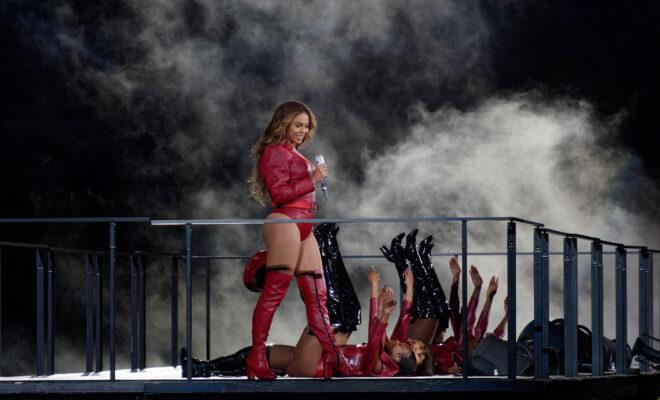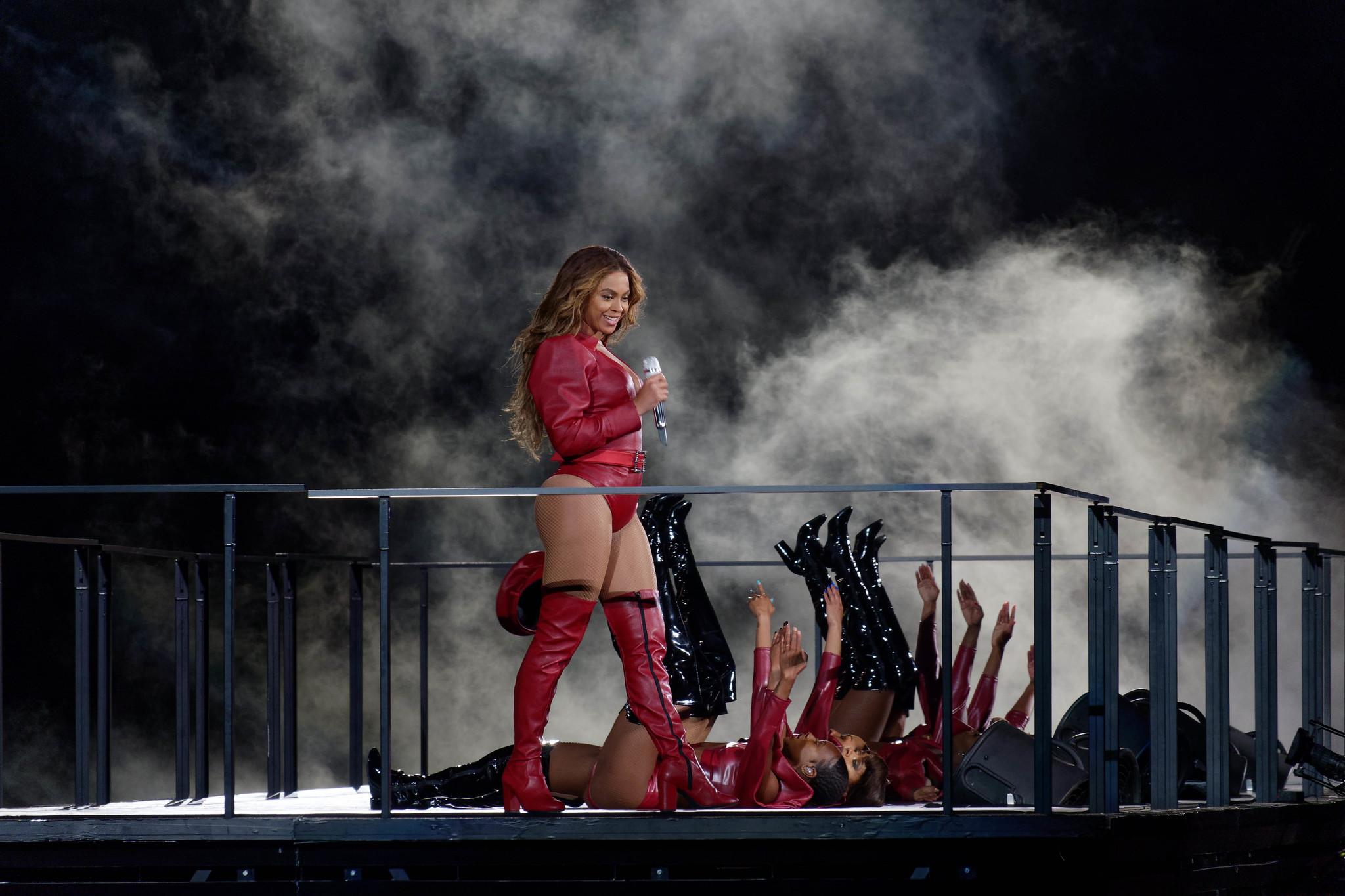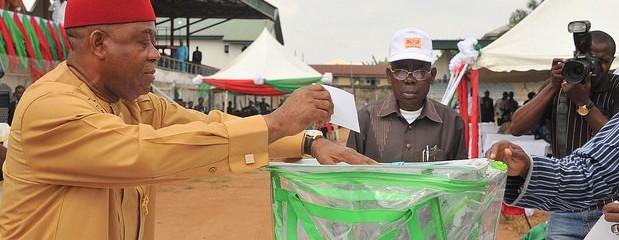Some global stars steal African music. On The Gift, Beyoncé celebrates it.

The Lion King album is an example for how African intellectual property should be treated.

Beyoncé performing in concert.
In 2010, the FIFA World Cup organising committee announced that Shakira’s “Waka Waka“ had been selected as the tournament’s anthem. There was considerable excitement about the world’s biggest sporting event, more so than usual because it was being hosted on the African continent – in South Africa – for the first time ever. FIFA probably expected an original song to celebrate this auspicious occasion, but Shakira’s creation was anything but.
“Waka Waka” was essentially a remix of the song “Zaminamina” by a 1980s Cameroonian military band called Zangalewa. The catchy hook and hard-hitting melodic drumbeats are exactly the same. The problem, however, was that World Cup song was credited only to Shakira. It was only after media investigations and a public outcry that Sony Music settled with Zangalewa and FIFA credited the chorus to the band.
This is a particularly notorious example of global artists ripping off African art and taking credit for it, but there are many more. Among other things, this phenomenon is enabled by power imbalances in terms of market access and media power as well as Eurocentric intellectual property laws that do not factor in African cultural interpretation of what constitute intellectual property rights.
Recently, another world-famous Western musician came across some African artistry that they wanted to use in their own work, except this time the story has a positive twist.
In July 2019, Beyoncé released The Gift, an album entrenched in diverse African sounds, sonic styles and languages. Its launch coincided with the release of the live action remake of The Lion King. On the album, Beyoncé does not follow in the tradition of her predecessors by appropriating and exploiting African creativity. She does not steal African music, but instead showcases it. Furthermore, she does not just curate an album with her interpretations of African sounds. She puts African artists at the fore.
Appropriating African art
There are a number of factors that have allowed Western artists to “borrow” from African music without credit or regard for its original creators.
First, African artists have not effectively maintained copyright to their work. This is not just out of negligence but a disparity in worldviews. Historically, many societies in Africa believed in the collective ownership of knowledge and its transference. The commodification of knowledge and creation is an extension of Eurocentric ideals such as private property, authorship and what intellectual property lawyer Alpana Roy terms “possessive individualism”. Copyright is not a historical or universal principle, but represents dominant narratives and exports from colonial powers. Most African creative producers are playing catch up.
Second, some African countries have not yet signed up to globally-binding protocols protecting intellectual property rights such as with the World Intellectual Property Organization. A number are party to regional bodies such as The African Regional Intellectual Organization and African Organization of Intellectual Property (OAPI), but these are parochial and lack the ability to enforce copyright globally.
It is these loopholes that perhaps allowed Micheal Jackson to use the hook from Manu Dibango’s “Soul Makossa” (1972) without credit in the lead single of his 1982 Thriller album “Wanna be Starting Something“. It allowed Missy Elliot to take the guitar chords from the 1978 song “Douala by Night” by Cameroonian duo J.M Tim & Foty to make her 2001 “Dog in Heat”. Even the song “The Lion Sleeps Tonight” used in the original Lion King in 1995 was a remake of “Mbube”, a song by late South African musician Solomon Popoli Linda.
Showcasing (some) African music
Beyoncé describes “The Gift” as a “love letter to Africa”. She says it incorporates “a lot of drums, chants, all of these incredible new sounds mixed…we’ve kind of created our own genre.”
This analysis has deservedly drawn criticism. Some commentators argue that the album is not a representation of the breadth of music on the continent even though Beyoncé’s own words imply otherwise. A common misconception has always been to treat Africa as a monolith so it is possible Beyoncé thought the inclusion of certain African sounds would appeal to all of Africa.
Well, it does not. Bien from the Kenyan band Sauti Sol highlights the limitations of treating sub-categories of African genres as representative of the entire continent. “Beyoncé was doing an Afrobeat-inspired album and Kenyans do not make Afrobeat music,” he said. “If she wants a Benga-inspired album, Kenya is the place to be.”
Still, the album is a soundscape of varied African instrumentation. It highlights the variance and diversity of at least some African sounds and shows why African music cannot ossify. The work of African artists on the album is not only given its due but they are also fully authentic and without compromise.
We hear Nigerian artist Wizkid going toe-to-toe with Beyoncé, serving the world an Afrobeats anthem in “Brown Skin Girl” which has quickly become a celebration of melanin, the beauty and complexity in colour. “Water” by Cameroonian artist Salatiel blends Makossa with elements of Afropop. On “Mood 4 Eva”, Beyoncé samples the rich Wassoulou sounds of “Diaraby Sene”, a 1989 track by (duly credited) Malian artist Oumou Sangaré.
One might contend that the proliferation of global streaming services has shifted the power differential between Western and African artists, meaning the latter are now globally visible in their own right. This might mean that it has become increasingly difficult for global artists to just steal African creations and pass it off as their own. But the scale at which Beyoncé involves and works with African artists in this album indicates a healthy respect for African creations that goes above this. It is a standard to which other collaborations should aspire.
A version of this article has appeared on Face2FaceAfrica





I’m glad to have been alive when the change of the narratives took place. I’m Bafaw and proud. Well done Si KWO. Up Africa!
Glad to be here. This is actually my first time here and hope to learn more here stuffs here. Have a great week
Wow what a fantastic contest how I wish I was there at that time we’ll most of the artists that were nominated back then are now big boys in the industry, I feel every one should take a look at this award they got and see that life is a stage
This what I’m saying about since these days lovely
I am so glad I came across this blog post. Really Helpful!
I’m glad to have been alive when the change of the narratives took place.
This is really used God bless you!
This really blessing… Gracias